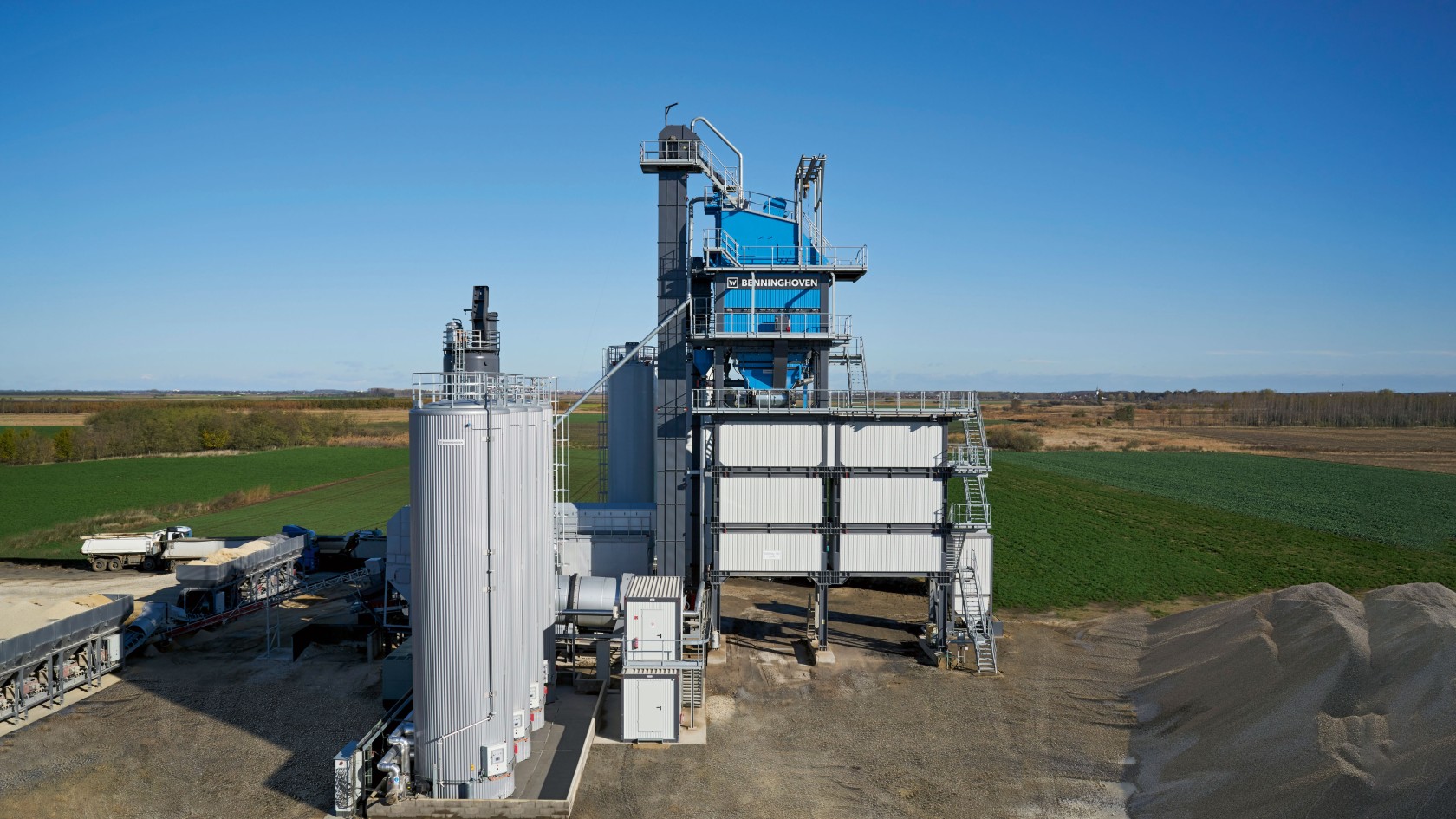How is Asphalt Produced?


In order to turn aggregates and bitumen into asphalt for road construction, a thermal mixing process is needed – this is what an asphalt mixing plant is used for. Whether transportable or stationary – with customized solutions from Benninghoven, the specialist for asphalt mixing plants, every mix will come out perfect.
Generally speaking, there are two main methods of producing asphalt: continuous production and discontinuous production.
Ciber is the Wirtgen Group brand that specializes in continuous asphalt production and maintains a strong presence in Latin America, Africa, Oceania, and Southeast Asia. In the continuous process, the production cycle runs without interruption and the asphalt mix is not produced in different batches.
In discontinuous production, the previously weighed components of the asphalt mix are mixed together in batches in an asphalt mixer according to a recipe. This method is more flexible, as the recipe can be changed after each batch. In addition, it’s possible to achieve a higher-quality mix by adding more accurate quantities and adapting mixing cycles.
In Europe, the discontinuous production process is mainly used for asphalt production.
While transportable plants are usually used in regions with a poorly developed infrastructure, stationary high-performance plants are often more popular in metropolitan areas. Benninghoven offers flexible solutions for reliable and cost-effective production. Each Benninghoven plant can be used to produce rolled asphalt as well as mastic asphalt.
High-performance, stationary systems are more likely to be used in metropolitan areas. They are usually placed in a convenient location to cover as large a supply area as possible and to keep trips between the plant and the construction site to a minimum – like near highway exits or the industrial areas of major cities, for example. In some cases, stationary asphalt mixing plants are also located directly at mineral deposits, such as quarries, in order to reduce the cost of delivering minerals to the plant. This type of plant requires a concrete foundation.
Transportable or semi-mobile plant types are perfect for temporary construction sites. They are usually purchased with the option of being able to relocate the plant, if necessary. This type of plant can be equipped with both a solid concrete foundation and a mobile steel foundation.
ECO asphalt mixing plants with optimized container dimensions for easy transport. These plants provide you with the maximum level of mobility and optimal flexibility and can be operated either as a stationary plant or relocated easily and quickly. The strength of these plants is the ability to transport them worldwide and design them as simply, economically and effectively as possible.
The modular design of the ECO series also makes it possible to subsequently integrate a wide range of high-tech components.
We have the right plant solution for the requirements in your market: Whether transportable or stationary or with a production capacity of 100 - 400 t/h, one thing always remains the same: Benninghoven offers you the most up-to-date solutions for producing asphalt in an economic, flexible and environmentally-friendly manner.

